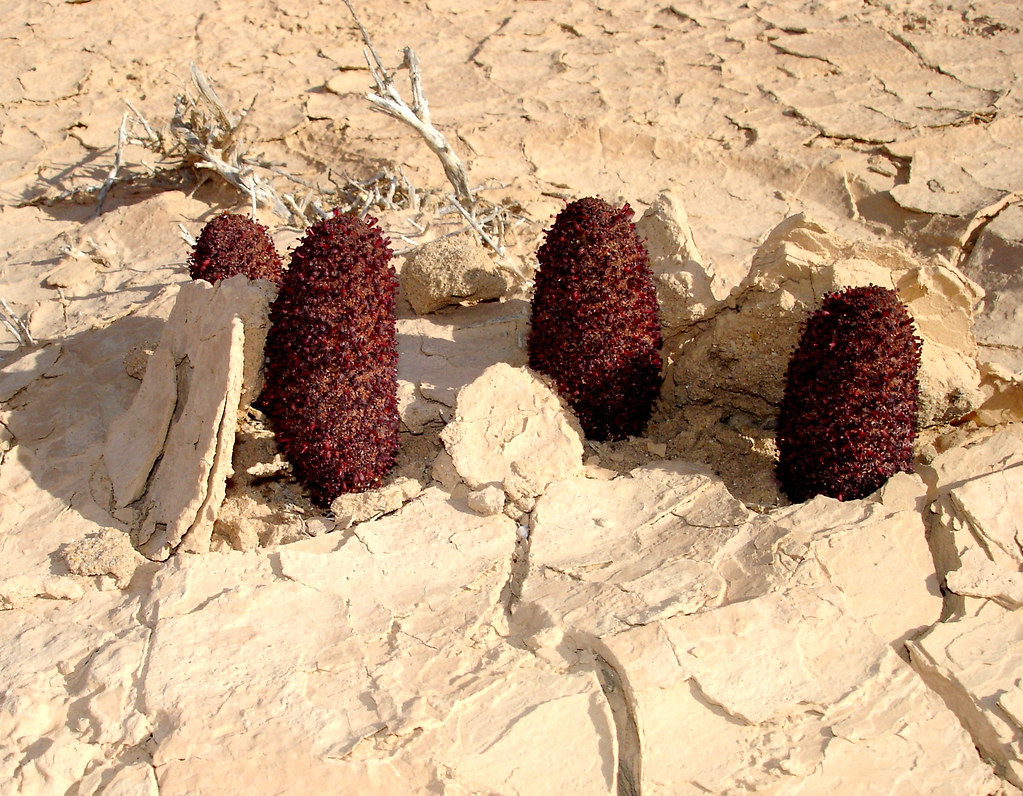Cynomorium coccineum, commonly known as the “scarlet club,” “red root,” or “desert flower,” is a unique and lesser-known herb that has been used for centuries in traditional medicine, particularly in the Middle East and North Africa. Often considered a powerful adaptogen, Cynomorium coccineum has been lauded for its medicinal properties, ranging from its ability to support vitality and sexual health to its potential role in combating various chronic conditions. Despite being relatively obscure in modern herbal circles, this ancient herb is gaining attention for its wide array of health benefits and potential therapeutic applications. In this blog, we will explore the fascinating history, medicinal properties, and health benefits of Cynomorium coccineum, offering insights into how this herb can enhance overall well-being in contemporary wellness practices.
What is Cynomorium Coccineum?
Cynomorium coccineum is a parasitic plant belonging to the family Cynomoriaceae. It primarily grows in arid desert regions, especially in North Africa, the Middle East, and parts of Asia. This plant has a striking appearance, often characterized by its reddish, succulent stems, which resemble club-like structures. The plant does not photosynthesize like typical green plants; instead, it derives nutrients by parasitizing the roots of other plants, particularly the Haloxylon species. Because of this parasitic nature, Cynomorium coccineum thrives in nutrient-deficient environments.
Cynomorium coccineum has long been revered for its medicinal properties, especially by ancient cultures such as the Egyptians, Arabs, and Berbers. Historical records suggest that the plant was used as a remedy for various health issues, from boosting energy and stamina to enhancing sexual health and treating gastrointestinal disorders.
The plant has earned its place in traditional medicine not only due to its long history but also because of the active compounds it contains, which contribute to its therapeutic effects. These compounds include alkaloids, flavonoids, saponins, and glycosides, all of which have demonstrated potent biological activity.
The Medicinal History of Cynomorium Coccineum
Cynomorium coccineum has been a staple in traditional healing systems for thousands of years. The ancient Egyptians are thought to have used the plant to treat ailments related to sexual dysfunction, infertility, and digestive health. It was considered a potent aphrodisiac and was sometimes included in herbal preparations designed to enhance male potency.
In traditional Arabic medicine, Cynomorium coccineum was regarded as a remedy for various conditions, including kidney problems, urinary tract infections, and chronic fatigue. It was believed to have revitalizing properties, restoring vigor and energy to the body. The herb’s reputation for boosting vitality and enhancing overall well-being also led to its use as a tonic for those recovering from illness or stress.
In North Africa, Cynomorium coccineum has been used to treat a range of conditions, such as impotence, low libido, and gastrointestinal disturbances. It is sometimes used in herbal teas or as a powder to be consumed for its stimulating and invigorating effects. The plant’s historical usage across various cultures highlights its versatility as a healing herb and underscores its important role in the development of traditional herbal medicine.
Key Active Compounds in Cynomorium Coccineum
Cynomorium coccineum owes its medicinal effects to the rich array of bioactive compounds it contains. While research into the specific pharmacological mechanisms of these compounds is still ongoing, several key constituents have been identified as being responsible for its therapeutic benefits. These include:
- Alkaloids: Alkaloids are nitrogen-containing compounds found in many plants and have a variety of pharmacological effects. In Cynomorium coccineum, alkaloids contribute to the herb’s stimulating, tonic, and energizing effects. Some alkaloids found in Cynomorium coccineum are believed to have neuroprotective properties, helping to enhance cognitive function and reduce fatigue.
- Flavonoids: Flavonoids are powerful antioxidants found in many plant-based foods and herbs. They help combat oxidative stress, which is a key factor in aging and the development of chronic diseases. In Cynomorium coccineum, flavonoids help to protect the body from oxidative damage, reduce inflammation, and support immune function.
- Saponins: Saponins are glycosides that are known for their ability to promote the absorption of nutrients, boost immunity, and support cardiovascular health. They also have mild anti-inflammatory properties, which can aid in the treatment of inflammatory conditions. In Cynomorium coccineum, saponins may contribute to the plant’s ability to support overall vitality and energy.
- Glycosides: Glycosides are compounds that, when broken down in the body, release beneficial sugar molecules that can support various physiological functions. These compounds are believed to help regulate blood sugar levels, improve circulation, and enhance the body’s overall metabolism.
Together, these compounds work synergistically to enhance the health-promoting effects of Cynomorium coccineum, making it a valuable herb for those seeking natural support for energy, vitality, and wellness.
Health Benefits of Cynomorium Coccineum
Cynomorium coccineum’s use in traditional medicine spans a wide range of health concerns, many of which continue to be relevant today. Scientific studies are beginning to shed light on the plant’s pharmacological properties, confirming some of the historical claims regarding its therapeutic potential. Here are some of the most well-known and promising health benefits of Cynomorium coccineum:
1. Enhances Sexual Health and Libido
One of the most famous uses of Cynomorium coccineum throughout history is its role as an aphrodisiac. In traditional medicine, the plant has been used to enhance sexual desire, performance, and fertility. Research supports the idea that Cynomorium coccineum may help balance hormones, increase libido, and improve sexual function.
The herb’s ability to support sexual health may be attributed to its rich alkaloid content, which is believed to stimulate the nervous system and enhance blood flow. This can result in improved circulation to the sexual organs, contributing to enhanced sexual performance and desire. Additionally, Cynomorium coccineum is sometimes used to treat erectile dysfunction and low sperm count, particularly in men, by improving testosterone levels and overall reproductive health.
2. Improves Energy and Stamina
Cynomorium coccineum has long been used as a natural tonic to improve energy and vitality. The herb’s adaptogenic properties help the body cope with physical stress and fatigue, making it a popular choice for athletes, individuals recovering from illness, or those experiencing chronic fatigue.
Research suggests that Cynomorium coccineum may enhance stamina and endurance, potentially improving athletic performance. The plant is believed to boost the body’s ability to tolerate stress and physical exertion, helping individuals feel more energetic and less fatigued. Its revitalizing properties may also contribute to faster recovery times after intense physical activity.
3. Supports Digestive Health
In traditional herbal medicine, Cynomorium coccineum has been used to treat a variety of digestive issues, including indigestion, bloating, and constipation. The plant is thought to have mild laxative effects, which can help promote regular bowel movements and improve digestion. It also contains compounds that may support the growth of beneficial gut bacteria, which are essential for overall digestive health.
Some studies suggest that Cynomorium coccineum may have anti-inflammatory properties that can help alleviate symptoms of inflammatory digestive conditions, such as irritable bowel syndrome (IBS). The herb’s ability to promote digestive health also ties into its reputation as a general vitality booster.
4. Supports Immune Function
Cynomorium coccineum contains a variety of compounds that can help support the immune system. Its antioxidant-rich profile, particularly its flavonoid content, helps protect cells from oxidative stress and free radical damage. By reducing oxidative damage, Cynomorium coccineum helps strengthen the body’s defenses against illness and infection.
Additionally, some research suggests that Cynomorium coccineum may possess antimicrobial and antiviral properties, which can further support immune health. Regular consumption of this herb may help prevent infections, reduce inflammation, and promote overall immune function.
5. Combats Inflammation and Oxidative Stress
Chronic inflammation and oxidative stress are linked to many modern diseases, including heart disease, diabetes, and cancer. Cynomorium coccineum contains potent antioxidant and anti-inflammatory compounds that help combat these issues. The plant’s flavonoids and saponins may reduce inflammation and protect the body from damage caused by free radicals.
By supporting the body’s natural defense mechanisms against oxidative stress, Cynomorium coccineum may help prevent the development of chronic diseases and support long-term health. This makes it a valuable herb for those looking to maintain overall wellness and reduce the risk of chronic conditions.
6. Enhances Cognitive Function
There is some evidence to suggest that Cynomorium coccineum may enhance cognitive function, including memory, focus, and mental clarity. Its stimulating alkaloid content is thought to support brain health by improving blood flow and oxygen delivery to the brain. This can result in enhanced cognitive abilities, improved mood, and reduced mental fatigue.
The herb’s potential cognitive benefits make it a valuable option for individuals looking to improve mental performance or combat age-related cognitive decline.
How to Use Cynomorium Coccineum
Cynomorium coccineum is available in various forms, including dried herb, powder, tinctures, and capsules. The most common way to consume Cynomorium coccineum is by preparing it as a tea or adding the powdered form to smoothies or other beverages. For those who prefer more concentrated doses, tinctures or capsules can provide a convenient option.
The recommended dosage of Cynomorium coccineum can vary depending on the form used and individual health needs. It’s always best to consult with a healthcare provider before starting a new herbal regimen to ensure safety and effectiveness.
Conclusion
Cynomorium coccineum, with its rich history of use in traditional medicine and its promising array of health benefits, is an herb worth considering for modern wellness. Whether you’re seeking to improve sexual health, boost energy, support digestion, or reduce inflammation, Cynomorium coccineum offers a natural and potent remedy for a variety of health concerns. As research into its medicinal properties continues to evolve, this ancient plant may find its place as a powerful tool in the modern herbalist’s toolkit. Always consult with a healthcare professional before adding any new supplement or herb to your regimen, and remember that consistency and balance are key to reaping the full benefits of this remarkable herb.

